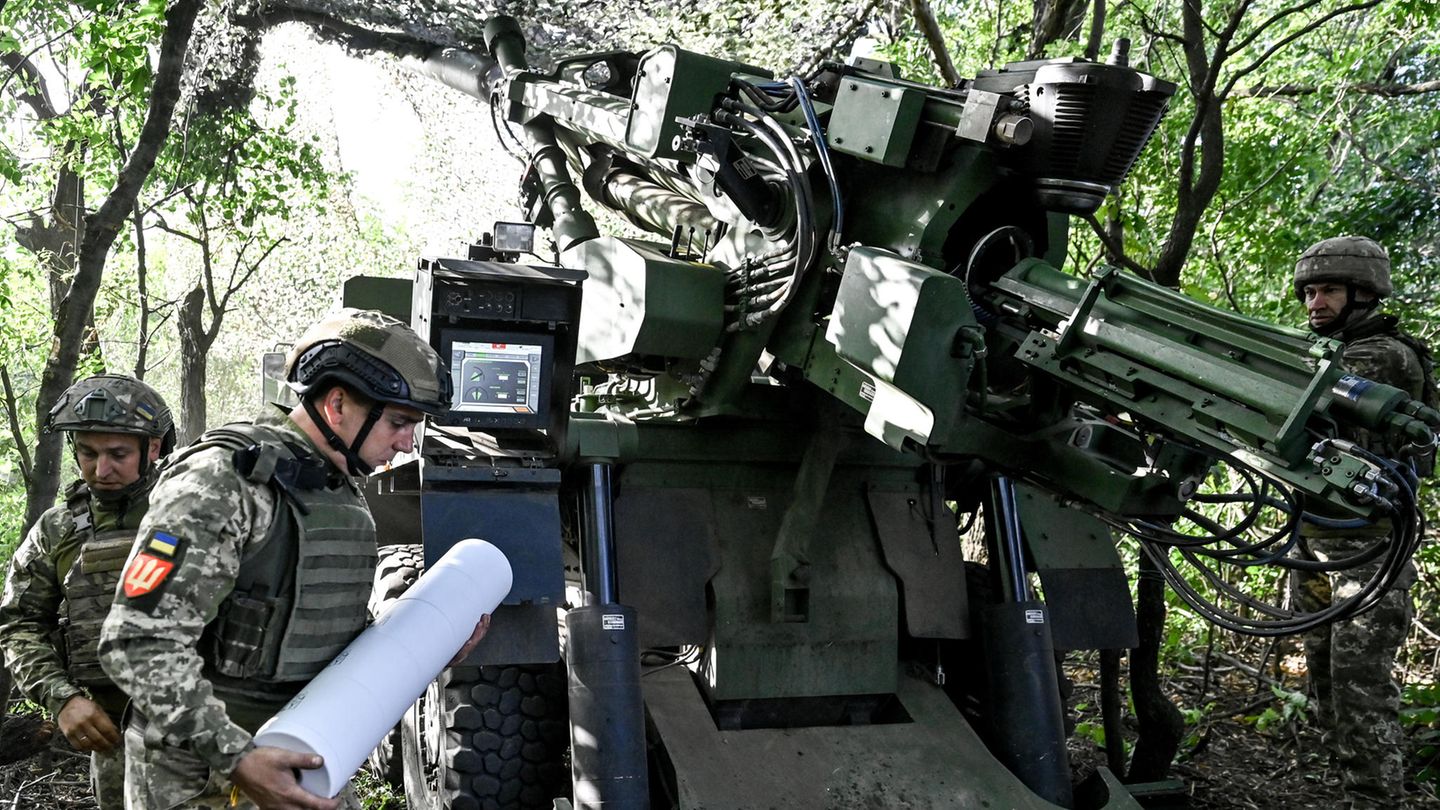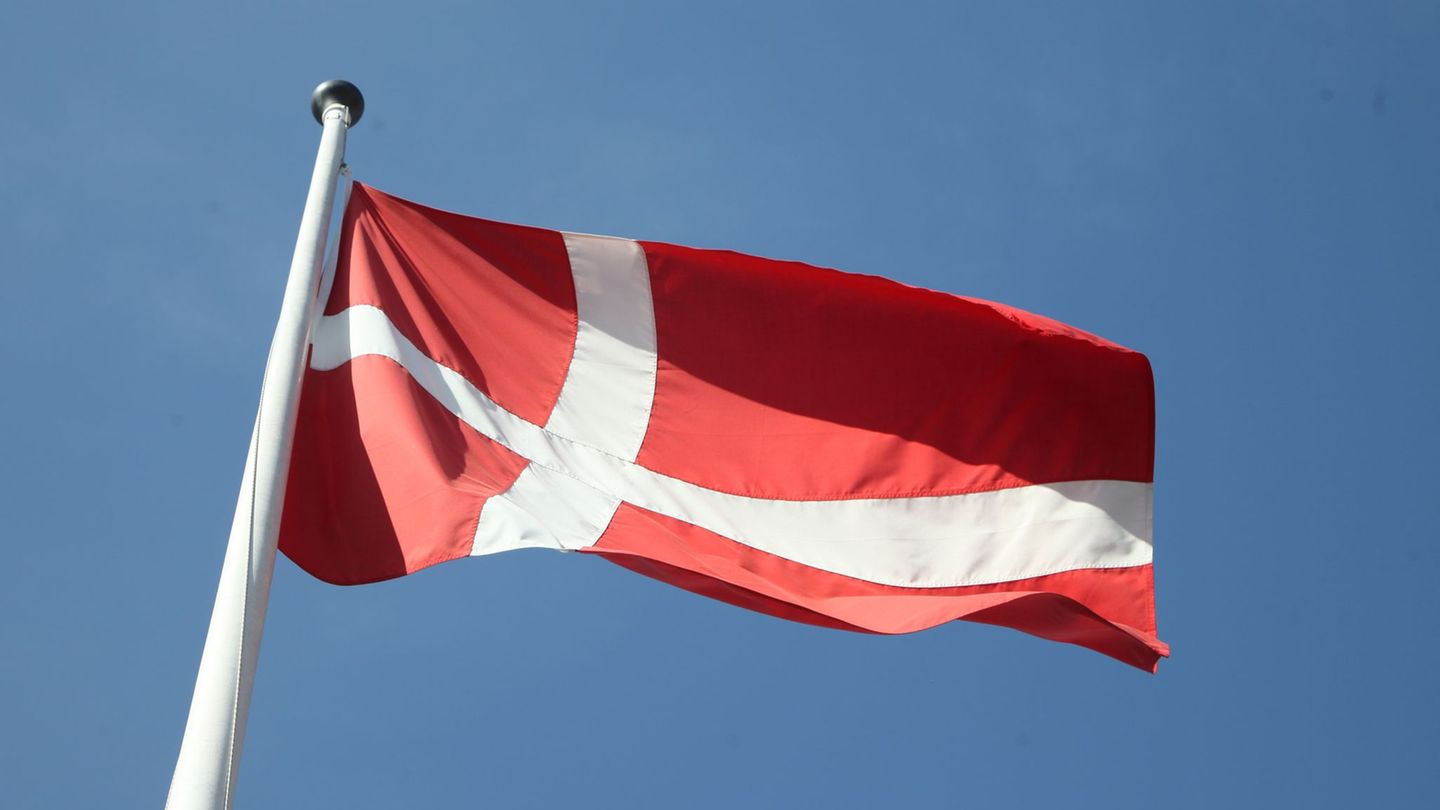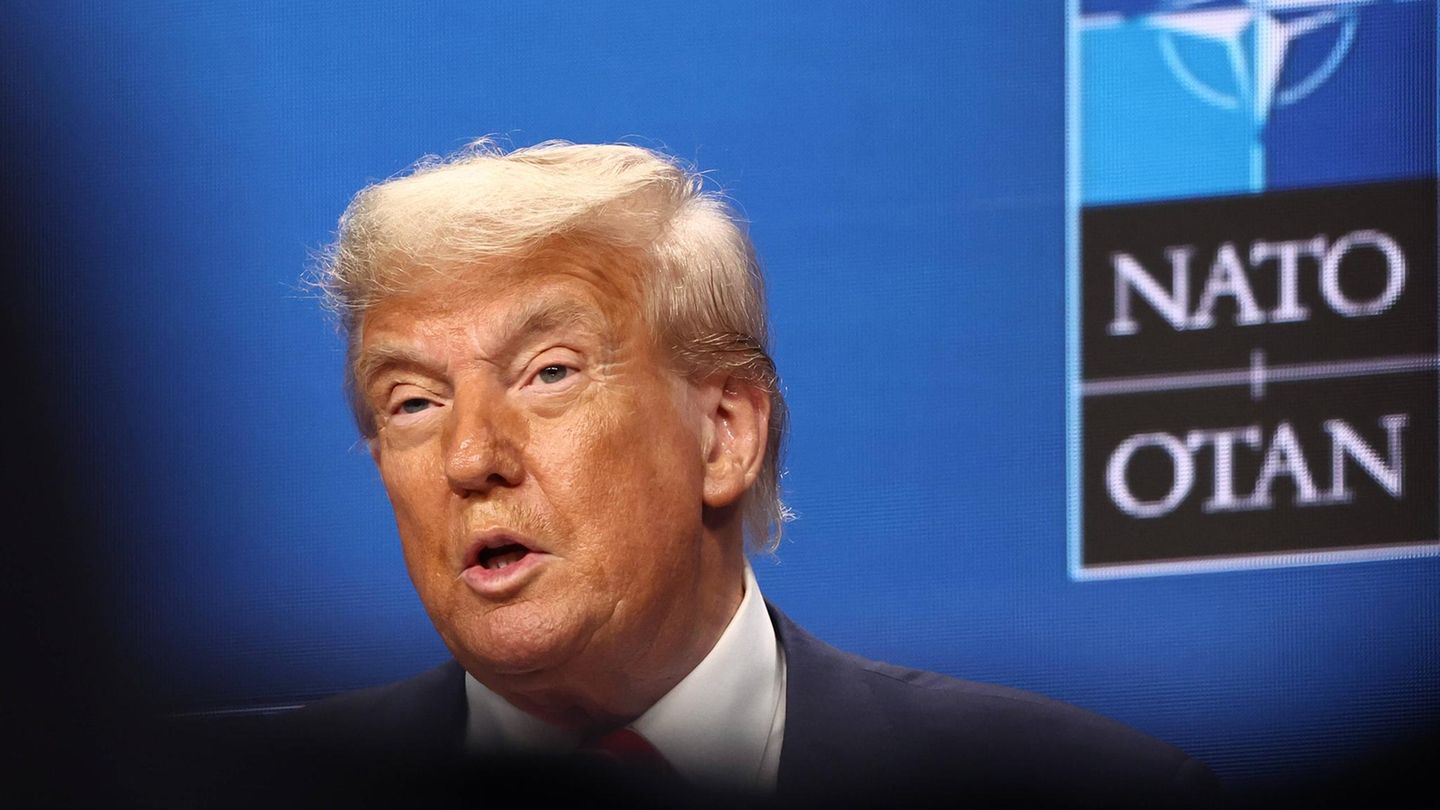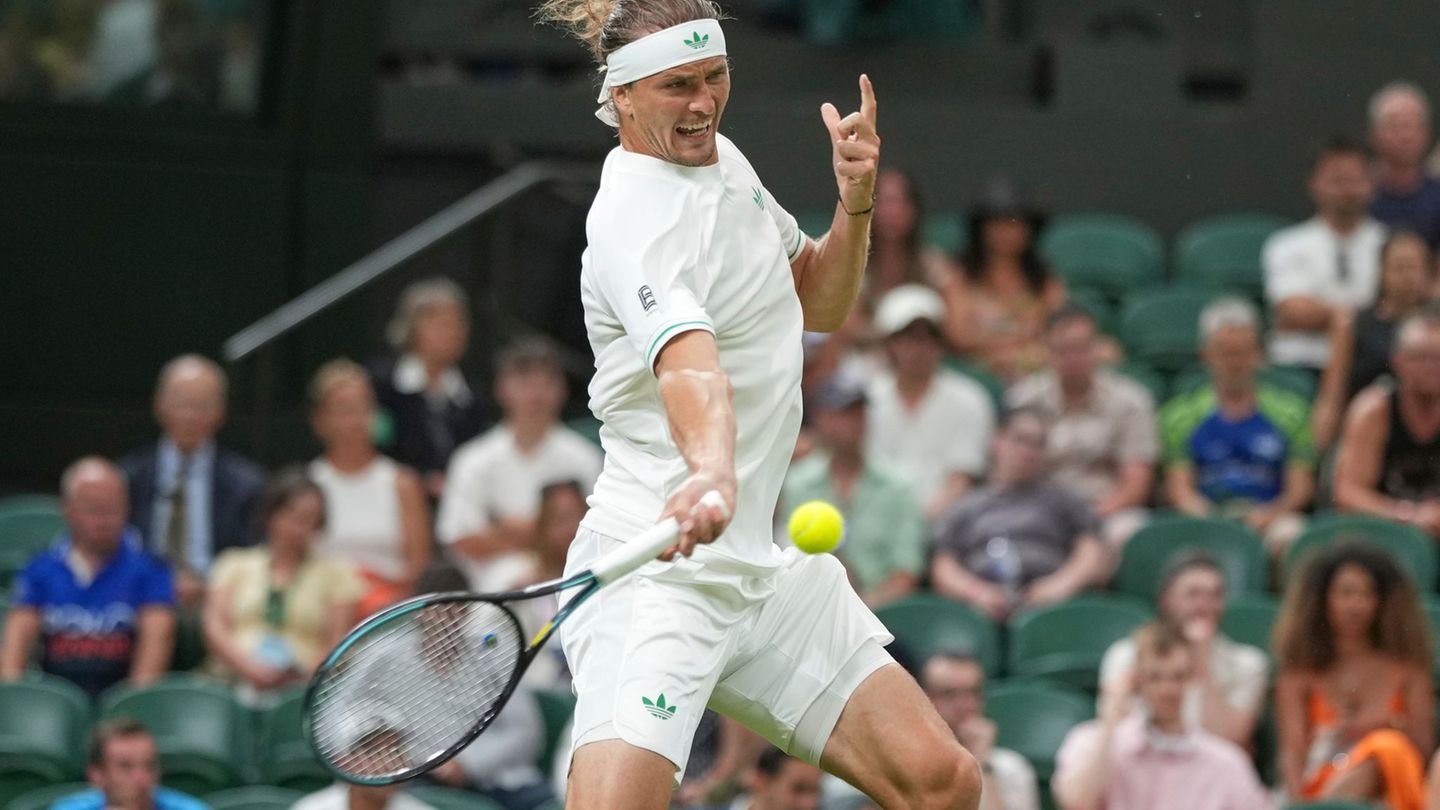Ukraine’s partners will meet on Saturday – but what is the situation on the front? Lieutenant Colonel Palisa leads a brigade there. More weapons alone, he says, are not enough.
The starteam meets Pavlo Palisa in a basement in the small town of Druzhkivka. From here it is only a few kilometers to the front – which the lieutenant colonel and his brigade are trying to hold.
What is the military situation at the moment on this section of the front? Donbas?
The situation is stable and difficult. The Russians are trying to break through our front lines with small infantry groups, using tanks and other armored vehicles. Thank God still no success. At most once a month the opponent destroys a position that we cannot hold.
The Ukrainian army recently had to defend the city after more than two years Wuhledar give up. What are the military consequences?
This is the section of the neighboring military unit. Therefore, it is difficult to assess how this will affect our situation. But undoubtedly this is a very difficult moment because this city has been defended for a very long time. It’s also a blow to morale.
© Moritz Gathmann
To person
Pawlo Palisa comes from Lviv and has been a soldier for 20 years. At the beginning of the war he was studying in the USA, but returned to Ukraine. The lieutenant colonel has been the commander of the 93rd brigade, which defends the front in Donbas, since 2023. The brigade is considered one of the strongest Ukrainian military units
The Russian army is now also a few kilometers from the city Pokrovskwhich has played an important role in supplying Ukrainian troops over the past few years. How serious would the capture of the city by the Russians be?
Undoubtedly, Pokrovsk is an important logistics hub. But a loss of Pokrovsk will not bring the opponent any fundamental success. Incidentally, I don’t think the enemy will be able to muster enough resources to take the city in the near future.
There has been a lot of controversy in the Ukrainian media recently about the quality of Ukraine’s defense systems. How well positioned are you here?
As for the facilities in our section, we have the opportunity to plan and execute them independently. I cannot and do not want to comment on the remaining sections.
How significantly are you outnumbered by the Russian troops here?
The Russians can recover losses faster than we can. They have a lot of soldiers. They also have more material, but they use it mostly unsuccessfully. There are about 60 destroyed tanks and armored vehicles in front of our defense line. That speaks for itself.
Another commander told me: “With the material and soldiers we have, all we can do at the moment is ‘putting out fires’, i.e. waiting out Russian attacks and repelling them.” Do you see it similarly?
Our task today is defense. And that means destroying the attacker and creating conditions for counterattacks. That’s what we’re doing right now.
The Ukraine demands that its Western partners be allowed to use their long-range missiles to attack targets in Russia. How important is this for the course of the war?
This is very important. The destruction of the enemy at the front, behind the front, precision strikes against important objects, only all of this together achieves something. If you only focus on one goal, it won’t achieve anything.
Ukraine has high hopes for drones. Does their use here at the front give you an advantage over a numerically superior enemy?
There are many Russian units in our section who also have more drones than us. But regardless of this, we do a lot of damage to the enemy. From this I can conclude that our drones are currently of better quality and that we also program them better – for example, how fast they move and where. We will continue to develop this slight superiority because it is a new form of support for the infantry, with which we can attack the enemy’s artillery positions. This is our trump card. This way we can kill more Russians and protect our own soldiers.
A new wave of mobilization has been underway in Ukraine since spring. Can you make up for your losses with the fresh soldiers?
People come, yes, but it would be good if there were more. They are satisfactorily trained, but like any commander, I wish things were better. Every commander wants to see young, motivated and physically strong men. But we work with what’s there, we try to train them to survive on the battlefield.
We hear again and again about men who are forcibly picked up from the streets by the military authorities and sent to the front. How widespread is this practice?
I don’t know that. These questions must be asked of the employees of these offices in the regions.
But how does this affect the motivation of the soldiers?
Motivation depends on many factors. There is the community, the section where they are deployed, the quality of leadership, training and casualties. Where the intensity of the enemy’s attacks is greater, there are more casualties. And there motivation drops faster. I’m not going to lie: the units are exhausted – some more, some less. But the boys still hold their own.
Recently there was talk in the Ukrainian media that 100,000 soldiers had left their units without permission. How serious is this problem for you?
This is generally a problem in the Ukrainian army. It would be good if these soldiers could be reassigned when they return – or if the problems that caused them to leave their unit were solved.
But are you counting more cases recently?
Not in our brigade. It’s a magnitude like 2023 or 2022.
You are seen as a commander who strives to maintain close contact with the soldiers. What do they think about the fact that there is increasing discussion abroad and in Ukraine about the need for negotiations with Russia?
Of course the soldiers talk about it. Everyone has their own opinion. Some are completely exhausted and want to rest, see their families and return to a peaceful life. Others want to continue the fight even when they are tired. And no matter how our partners see it: everyone has the right to their own opinion. But work is work. My own view is: all conflicts end with negotiations, but today there are not the necessary conditions for negotiations. Therefore, there will be no negotiations leading to a ceasefire in the near future.
What has to happen for that?
The conditions must be created. To do this, both sides must be willing to negotiate. But neither the Russians nor the Ukrainians are ready for this at the moment.
When would one side or the other be ready for this?
Neither one side nor the other has currently exploited all possibilities for waging war. This is not about achieving any goals. It’s about skills. Until battlefield capabilities are exhausted, serious negotiations will not take place.
At the same time, you recently admitted in an interview that the war of attrition that we have been seeing for two years now is working to Russia’s advantage: the country has more inhabitants, but at the same time the fighting is primarily taking place on the territory of Ukraine.
Yes, that’s true.
What needs to happen to put Ukraine in a better position to force the Russians to negotiate?
Let’s assume that the result of the war is a number that is the difference between the sum of our mistakes and those of the enemy. We have to achieve the result we need by not repeating our mistakes and giving the opponent the opportunity to make more mistakes. At all levels: tactically, economically, also when it comes to public relations. I definitely don’t want to underestimate the Russians. This is a strong opponent, but we can defeat him. It depends on how cleverly and comprehensively we wage this war.
What weapons does Ukraine need for this? Are tanks still relevant?
There is no universal weapon. You have to combine weapons. We need precision weapons in the necessary numbers, i.e. missiles, a larger number of drones, technology for electronic warfare, artillery, ammunition, and also cluster bombs. But it’s not just the number that matters, but the time factor. In times of war, the most important resource after human lives is time, because time saves human lives and resources.
In August, Ukraine scored a surprise victory by invading Russia’s Kursk region. One of the goals was to relieve the pressure on Ukrainian troops here in Donbas. Did it achieve anything?
I am a small fry, the goals of such an operation are not communicated to me. Our opponents’ attacks have been stable and intense for six months. I don’t see any deficit in ammunition or personnel on the part of the enemy.
What would be a victory for you in this war?
Reaching the limits of 1991. But we still have a lot to do to achieve this. But that’s realistic. To achieve this goal, we must change faster and become better. And I don’t just mean the army: a comprehensive approach is needed, a will to win in the state and in society. Reaching the 1991 borders will not mean final victory. It’s just a stage. We have an enemy that we have been fighting for 400 years. And I am convinced that we will continue to fight against him in the future. Russia and Ukraine are irreconcilable opponents. Russia wants to destroy Ukraine as a state. We defend him. And this is passed down from generation to generation. We will only be safe when we are so strong that even an adversary like Russia will not even think of waging war against us.
Source: Stern
I have been working in the news industry for over 6 years, first as a reporter and now as an editor. I have covered politics extensively, and my work has appeared in major newspapers and online news outlets around the world. In addition to my writing, I also contribute regularly to 24 Hours World.




